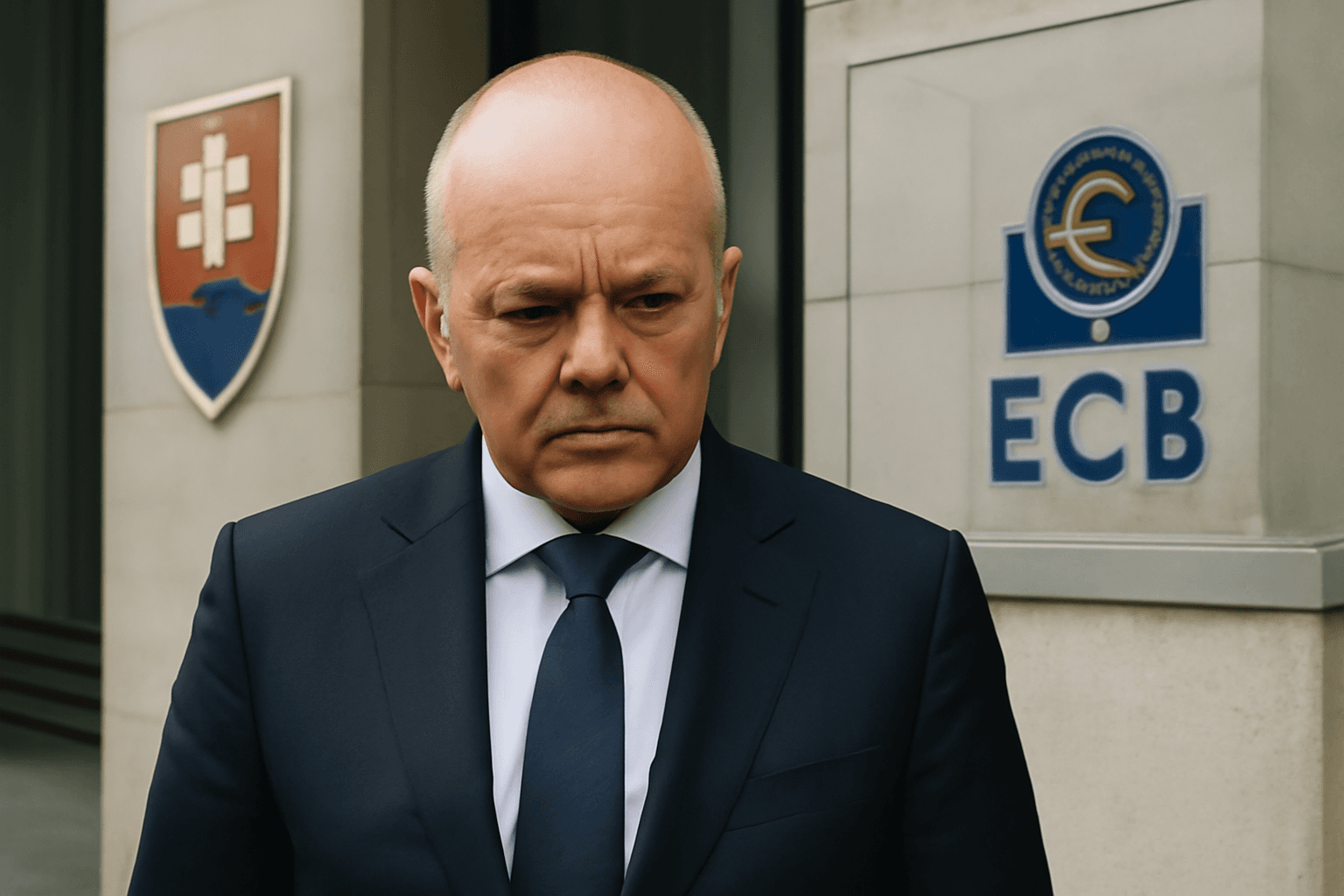Peter Kažimír, Slovakia's central bank governor and member of the European Central Bank's governing council, has been convicted of bribery and fined €200,000 ($225,000) by the Special Criminal Court in Pezinok. The verdict, delivered on May 29, 2025, relates to a bribery case from 2017 involving a luxury villa purchase.
Judge Milan Cisarik handed down the sentence, which Kažimír’s defense team intends to challenge through an appeal. The governor, whose six-year term is set to expire imminently, was absent from the court hearing but issued a statement asserting his innocence and declaring his intention to appeal the decision.
The charges stem from allegations that Kažimír paid a €48,000 ($54,000) bribe to the head of Slovakia’s tax office during 2017-2018. This payment was linked to a favorable tax audit of several private companies owned by the seller of the luxury villa in Bratislava’s upscale neighborhood. Kažimír has consistently denied all accusations, asserting they are unfounded and politically motivated.
Previously serving as finance minister under Prime Minister Robert Fico’s leftist government, Kažimír was a member of the Smer party before assuming his role at the central bank. Following Smer’s defeat in the 2020 election by an anti-corruption coalition, multiple officials associated with Fico’s administration faced legal scrutiny, with Kažimír being the first to stand trial.
Slovakia uses the euro alongside 19 other European countries, and Kažimír’s position on the ECB’s governing council makes this conviction particularly notable on both national and European levels.
Notably, in early 2024, the Fico-led government enacted controversial reforms to Slovakia’s penal code that reduced penalties for corruption, reinstated the possibility of suspended sentences, and curtailed the statute of limitations for such offenses. These reforms, coupled with the abolition of the special prosecutor’s office dedicated to high-profile corruption cases, sparked widespread domestic protests and drew international criticism.
Robert Fico returned to power in 2023 after his Smer party promoted a pro-Russia, anti-American agenda during the parliamentary elections. This political backdrop frames ongoing debates around corruption and judicial reforms in Slovakia.

